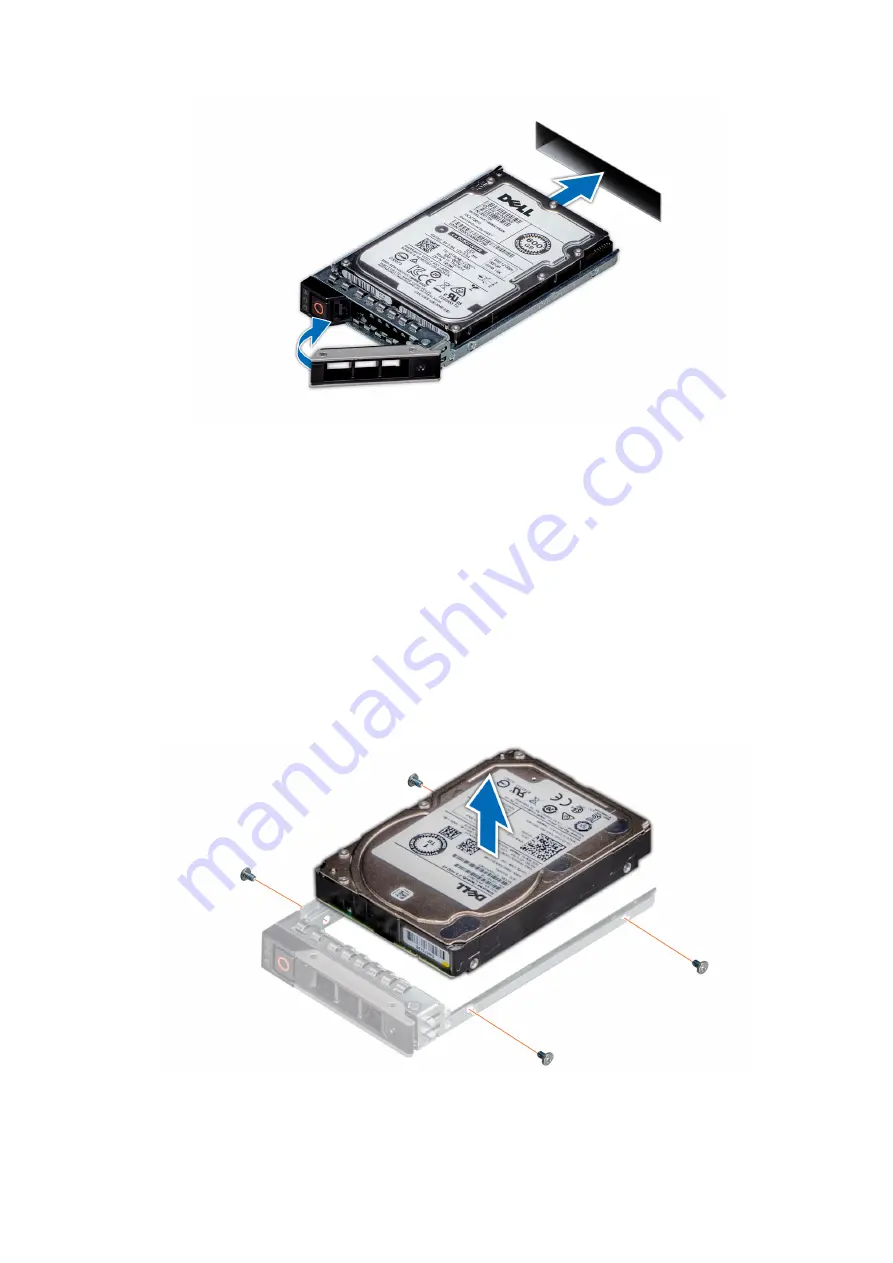
Figure 32. Installing a drive carrier
Next steps
Removing the drive from the drive carrier
Prerequisites
1. Follow the safety guidelines listed in the
2. If installed,
Steps
1. Using a Phillips #1 screwdriver, remove the screws from the slide rails on the drive carrier.
2. Lift the drive out of the drive carrier.
Figure 33. Removing the drive from the drive carrier
58
Installing and removing system components
















































